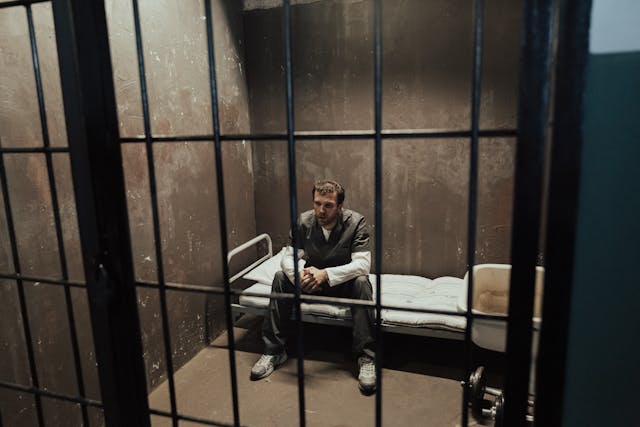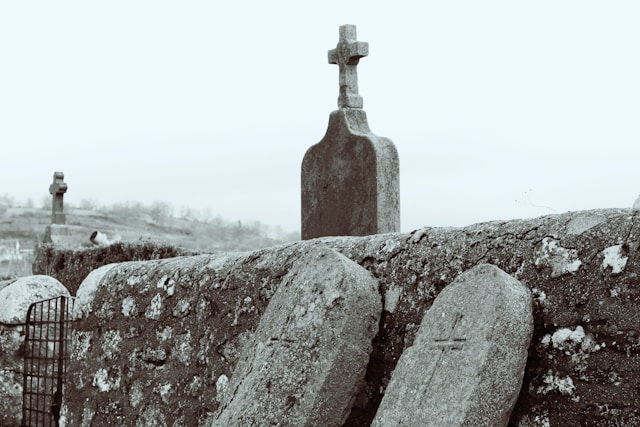When the Future Feels Empty: Wrestling With Time, Purpose, and Mortality
Keyword: fear
There are days when the future doesn’t feel full of promise.
It feels terrifying.
The clock ticks. The body ages. Even the smallest indulgence—like a drink—feels like a betrayal, a step closer to the end. We work, we hustle, we reflect… but underneath it all is the ache: What is it all for?
For those who fear that their life is rushing toward a meaningless end, these feelings can be crushing. This article is a reflection for the restless—the ones who lie awake at night wondering, “Why am I here if it all ends so soon?”
Let’s explore this struggle through the lenses of psychology, lived experience, and biblical truth.
The Fear Behind the Future
Fear of the future is often not about events—but about existence.
The uncertainty that nothing we do will matter. That time will run out before we’ve even figured out what to do with it. That we’re wasting our one chance.
This is sometimes called existential dread—a fear rooted in the search for meaning. Psychologist Irvin D. Yalom, in his work Existential Psychotherapy, explains that this fear stems from four main concerns:
- Death
- Freedom (and the burden of choice)
- Isolation
- Meaninglessness
In his words:
“The human being seems to require meaning. Without it, we fall into despair.”
The Psychology of Time and Meaning
You’re not alone in this feeling. Research in psychology has explored this fear in depth.
- A 2019 study in the Journal of Anxiety Disorders linked intolerance of uncertainty to higher levels of anxiety, depression, and emotional distress (Carleton et al., 2019).
- Terror Management Theory (Greenberg, Solomon, Pyszczynski) explains that we manage our fear of death by seeking self-esteem and meaning. But when those pillars feel weak, we experience existential crisis.
- People who feel disconnected from purpose often report lower well-being, higher rates of burnout, and increased substance avoidance—not indulgence—as a form of control over their aging and mortality (Steger et al., 2006).
So yes—fearing alcohol because it “accelerates aging” is a rational response for someone trying desperately to hold on to time.
But here’s the truth: the fear doesn’t go away by avoiding death. It softens when we embrace meaning.
What the Bible Says About Time, Fear, and Purpose
The Bible is not silent on the weight of existence. It speaks often about mortality, purpose, and the fleeting nature of life:
- Ecclesiastes 1:2 – “Meaningless! Meaningless! says the Teacher. Utterly meaningless! Everything is meaningless.”
Even Scripture starts here—acknowledging the depth of existential despair. - Psalm 90:12 – “Teach us to number our days, that we may gain a heart of wisdom.”
This verse doesn’t dismiss the fear of time. It uses it as fuel for wisdom. - Isaiah 46:4 – “Even to your old age and gray hairs I am he, I am he who will sustain you.”
God doesn’t abandon us as we age. He promises presence. - Ephesians 2:10 – “For we are God’s handiwork, created in Christ Jesus to do good works, which God prepared in advance for us to do.”
Your life isn’t accidental. It is assigned. You may not see the full plan, but there is one.
From Fear to Grounded Living
There is no switch that erases existential fear—but there are steps that lead us from paralysis into peace.
1. Name the Fear Honestly
You don’t need to silence this fear to survive it. Speak it. Write it. Pray it. Naming fear removes its shadow.
2. Anchor Yourself in Daily Purpose
Don’t look for one grand, lifelong purpose. Look for the good you can do today. Purpose is found in the small: showing up, serving, creating, listening.
3. Let Mortality Inspire Action, Not Dread
The brevity of life can shrink us—or sharpen us. Use the ticking clock as a reason to engage deeply, not to withdraw.
4. Lean Into Faith Over Fear
Biblical faith doesn’t deny fear—it meets it with trust. You don’t need all the answers to move forward. You only need to trust that God does.
Meaning Isn’t Found. It’s Lived.
It’s okay to feel like you’re running out of time. It’s okay to feel unsure. But don’t let that uncertainty steal the life you do have.
You don’t need to earn your worth. You were created with it.
You don’t need to delay joy until your future feels certain. Joy can be a protest against despair.
So breathe. Live. Pray. Create. Help someone.
You’re not here by accident—and you’re not alone in the ache.
Further Reading & Resources
- Yalom, I. (1980). Existential Psychotherapy. Basic Books.
- Carleton, R. N. et al. (2019). “Fearing the unknown: A short version of the Intolerance of Uncertainty Scale.” Journal of Anxiety Disorders.
- Greenberg, J., Solomon, S., & Pyszczynski, T. (1997). Terror Management Theory: A practical guide to death and life.
- BibleGateway.com – Search verses about fear, time, and purpose
- Man’s Search for Meaning by Viktor E. Frankl (classic on finding meaning in suffering)







